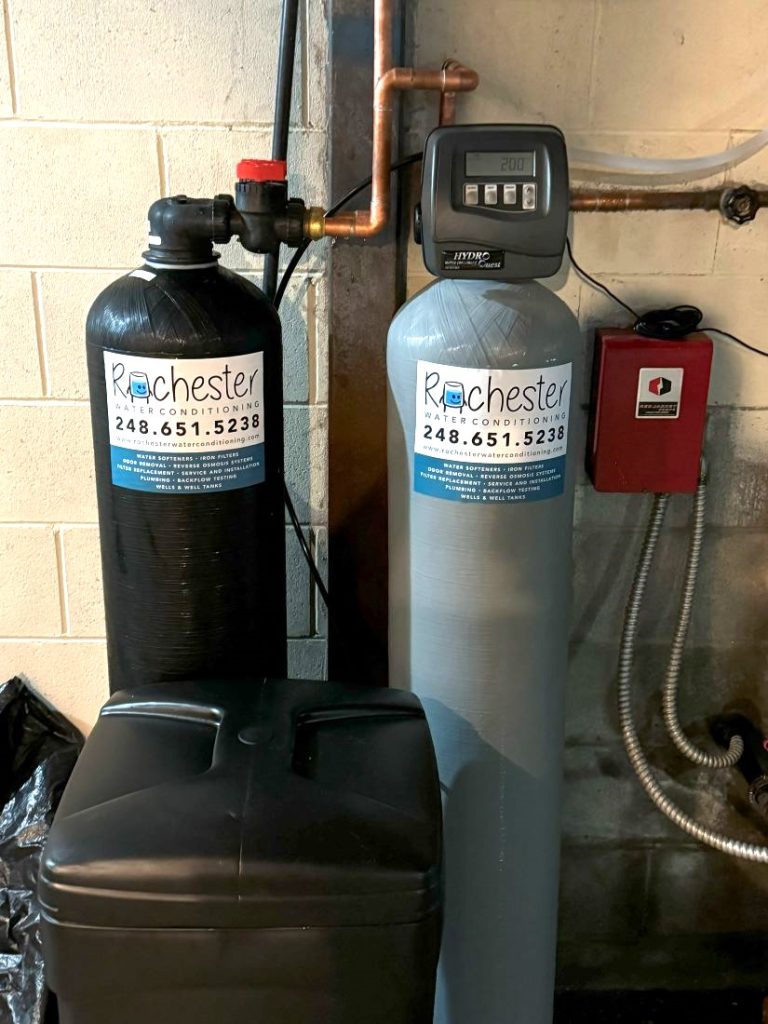
Water Testing Services
Rochester Water Conditioning

Importance of Water Testing
Water testing is the process of analyzing a water sample to determine its quality and safety. This can involve a variety of techniques, such as chemical analysis, biological testing, and physical examination, to identify any contaminants or other substances that may be present in the water.
Reasons to Have Your Water Tested
There are many reasons why people may choose to have their water tested. For example, if you are on a private well, you may want to test your water regularly to ensure that it is free from harmful contaminants such as bacteria, pesticides, and heavy metals. Additionally, if you are concerned about the taste, odor, or appearance of your water, testing can help determine the cause of the problem and suggest solutions.
On-Site Water Testing
- Hardness
- Iron
- PH
- TDS
- Chlorine
- Arsenic
How Water Testing is Performed
Water testing is typically performed by a certified laboratory that has the equipment and expertise to accurately analyze water samples. In some cases, you may be able to collect a water sample yourself and send it to a laboratory for testing. However, it is important to follow the proper procedures for collecting and handling the sample to ensure the accuracy of the results.
Get Your Water Tested with Us
If you’re interested in having your water tested, visit our contact page for more information. We will provide you with the necessary materials and instructions for collecting a water sample, as well as help you interpret the results of the testing.

Understanding Water Quality
Understanding Water Quality
Here’s a brief explanation of each factor and its significance to water quality:
- Hardness
- Description: Caused by high levels of calcium and magnesium in water.
- Importance: Hard water can cause scaling in pipes, reduce the efficiency of soap and detergents, and affect taste. It’s not harmful to health but can lead to maintenance issues.
- Iron
- Description: Often found in groundwater, appearing as dissolved or particulate matter.
- Importance: Excessive iron causes staining on fixtures and laundry, affects taste, and can promote bacterial growth.
- pH
- Description: Measures the acidity or alkalinity of water on a scale of 0-14 (7 being neutral).
- Importance: A pH outside the range of 6.5-8.5 can corrode pipes, affect the solubility of other contaminants, and cause health issues.
- TDS (Total Dissolved Solids)
- Description: Represents the total concentration of dissolved substances in water, such as salts and minerals.
- Importance: High TDS levels can affect taste, cause scaling, and indicate potential contaminants like nitrates or heavy metals.
- Chlorine
- Description: A disinfectant used to kill bacteria and other pathogens in water.
- Importance: While effective in disinfection, excess chlorine can cause an unpleasant taste and potentially harmful byproducts.
- Arsenic
- Description: A naturally occurring toxic element that can contaminate groundwater.
- Importance: Arsenic exposure can lead to severe health problems, including cancer, making its removal critical for safe drinking water.
Understanding and managing these factors ensures water safety, palatability, and protection of health and infrastructure.
